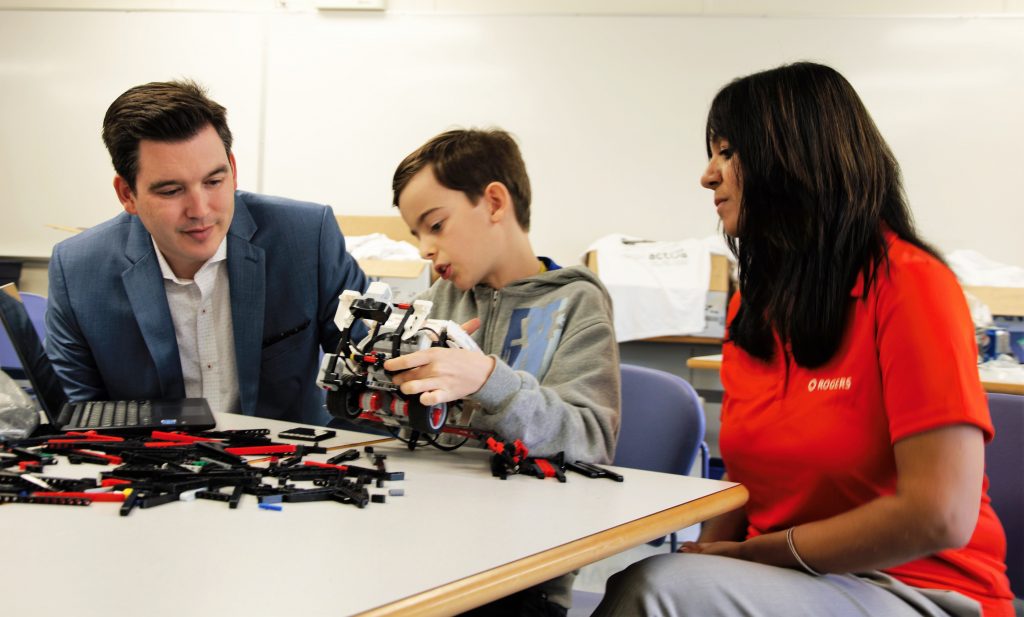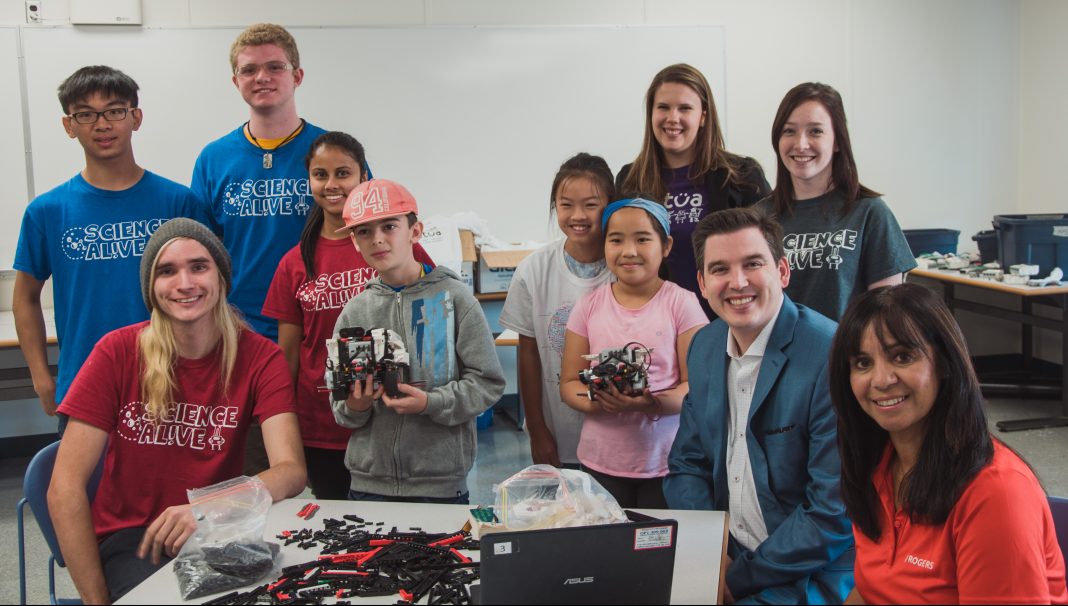The youth science camps held at the SFU Burnaby campus this summer hosted some big names on a recent tour.
Executives from the communications giant Rogers and the Member of Parliament (MP) for Burnaby North-Seymour, Terry Beech, visited the Science AL!VE camp for a tour and to recognize the work done by the organization last month.
Rogers also presented the summer camps with a $25,000 community grant.
“[This grant] is really about ‘how do we figure out a way to get young people like you to [access] great education to help you reach your dreams,’” said Rogers vice-president partner retail Perm Jawanda.
Summer camps are just one of the many programs hosted by Science AL!VE, a student-run, non-profit organization based at SFU. The organization is a member of Actua, a science, technology, engineering, and mathematics (STEM) outreach organization, which works through post-secondary members to engage children in these fields.
The tour guests visited the Technovation and Electron camps, which focus on digital literacy and engaged the campers in engineering and programming projects. Jawanda and Beech talked with the campers about their projects on topics that ranged from robots to popsicle stick boats as the children explained what they’d been learning this summer.

Behind the scenes of the tour were the university-aged camp leaders, rallying to organize the children.
Hamish Clinton, a camp leader, spoke about what he loved about his job. “I would say that the best part [of this job] is the kids,” he said, “when you see that they actually understand something and they get that little glow in their eyes . . . it’s what keeps me in it.”
Student co-director of Science AL!VE Alisha Ward started out as a camper herself when she was eight years old since her father was a professor at the university, She took an instructor position with Science AL!VE in her first year at university and currently she’s in her third summer as a co-director for the camp.
Laura Bouwman, Actua’s Manager of Network Membership, also got her start at the summer camps.
For Bouwman, the benefit the camps have on the children is very evident. “Campers not only learn facts, but they learn twenty-first century skills, and how to work in teams. You see them come back, and they’re more confident in their ability to communicate and advocate for themselves,” she said.
Instructors have also noticed the campers arriving with greater technical skills and knowledge than before.
“The kids know so much more than what you expected them to,” said Clinton. “Especially for things like coding: basic coding is starting to become part of the elementary school curriculum, and that was never the case when we were kids. We were just learning how to type.”
The Science AL!VE programs seek to provide access to science for underprivileged youth and, in addition to the SFU summer camps, the organization is involved with programs in Indigenous communities and afterschool programs.
It also provides bursaries for kids who sign up for the science programming.




